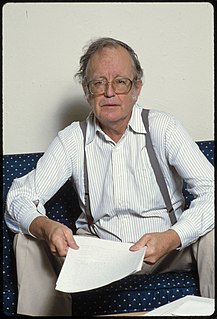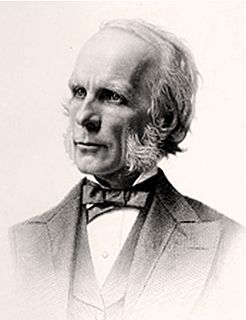A Quote by William Ernest Henley
Pointed criticism, if accurate, often gives the artist an inner sense of relief. The criticism that damages is that which disparages, dismisses, ridicules, or condemns.
Related Quotes
That was one of the big problems in the [Black Panther] Party. Criticism and self-criticism were not encouraged, and the little that was given often wasn’t taken seriously. Constructive criticism and self-criticism are extremely important for any revolutionary organization. Without them, people tend to drown in their mistakes, not learn from them.
Though Israel may often be deserving of criticism, what is missing is the comparable criticism of equal or greater violations by other countries and other groups. This constant, often legitimate criticism of Israel for every one of its deviations, when coupled with the absence of legitimate criticism of others, creates the impression currently prevalent on university campuses and in the press that Israel is among the worst human rights violators in the world....it is not true, but if it is repeated often enough, it takes on a reality of its own.
I don't have a very high opinion, actually, of the world of criticism - or the practice of criticism. I think I admire art criticism, criticism of painting and sculpture, far more than I do that of say films and books, literary or film criticism. But I don't much like the practice. I think there are an awful lot of bad people in it.
It is a fallacy to think that carping is the strongest form of criticism: the important work begins after the artist's mistakes have been pointed out, and the reviewer can't put it off indefinitely with sneers, although some neophytes might be tempted to try: "When in doubt, stick out your tongue" is a safe rule that never cost one any readers. But there's nothing strong about it, and it has nothing to do with the real business of criticism, which is to do justice to the best work of one's time, so that nothing gets lost.
You see an artist, a creative person, can accept criticism or can live with the criticism much more easily than with being ignored. Criticism makes you feel alive. If somebody is bothered enough to speak vituperatively about it, you feel you have touched a nerve and you are at least 'in touch.' You are not happy that he doesn't like it, but you feel you are in contact with life.
I hate orthodox criticism. I don't mean great criticism, like that of Matthew Arnold and others, but the usual small niggling, fussy-mussy criticism, which thinks it can improve people by telling them where they are wrong, and results only in putting them in straitjackets of hesitancy and self-consciousness, and weazening all vision and bravery.
As far as criticism, I don't mind critics. I mean, I wrote for 'Rolling Stone' for a hot minute. I like criticism. I enjoy criticism. The thing I don't like is cruelty for cruelty's sake. You don't have to be a jerk to say something negative. You can say something in the negative sense and have class.
[On The Waste Land:] Various critics have done me the honor to interpret the poem in terms of criticism of the contemporary world, have considered it, indeed, as an important bit of social criticism. To me it was only the relief of a personal and wholly insignificant grouse against life; it is just a piece of rhythmical grumbling.






































